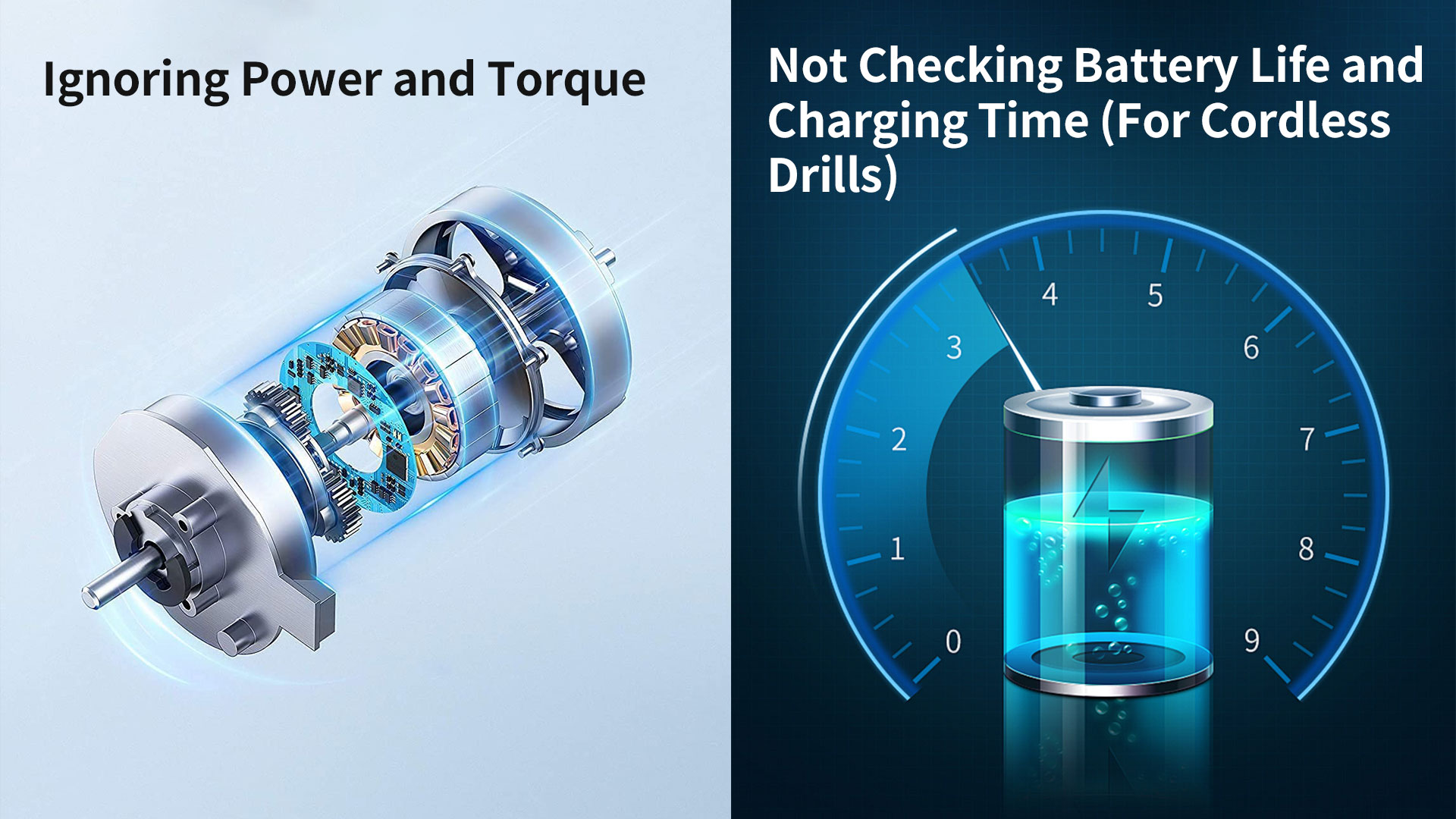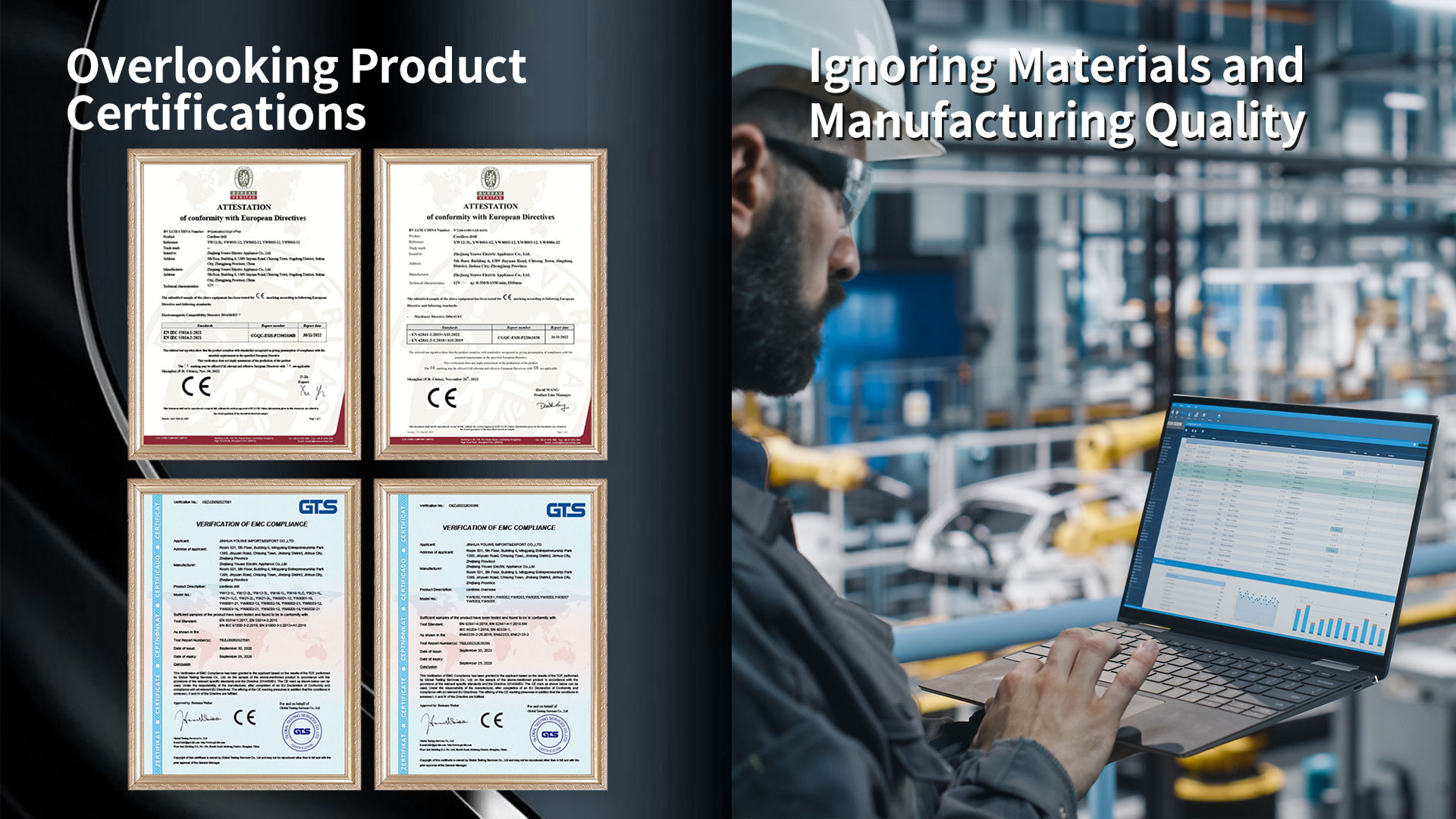When purchasing power drills for your business, it's easy to get caught up in price tags or appearances. However, buying the wrong product can lead to major problems—whether it’s poor performance, delayed projects, or even safety risks. To help you make smarter choices, we’ve outlined several common pitfalls in purchasing power drills and how to avoid them.

1. Ignoring Power and Torque
The problem: Many buyers focus on price or the look of the drill but overlook critical performance factors like power (Wattage) and torque (Nm). These two parameters determine how well a drill will perform, especially when working with hard materials like metal, hardwood, or concrete. A low-power drill might fail to get the job done, leading to frustration and wasted time.
How to avoid it: Choose the drill based on the materials you’ll be working with. For drilling through hard materials, opt for a drill with high wattage and torque. For lighter tasks or home use, a medium-power drill will suffice. Don’t just go for the cheapest option—consider the actual power you need for your projects.
2. Not Checking Battery Life and Charging Time (For Cordless Drills)
The problem: For cordless drills, the battery life and charging time are crucial. If the battery runs out too quickly or takes hours to recharge, it can seriously affect your productivity, especially if you don’t have a spare battery.
How to avoid it: Opt for drills with high-quality lithium-ion batteries, which tend to last longer and charge faster than older types like NiCd batteries. Also, pay attention to the battery’s capacity (measured in Ah—Ampere-hours). A higher Ah value means longer battery life. Finally, consider getting a fast charger to reduce downtime between charges.

3. Overlooking Product Certifications
The problem: Some suppliers may offer fake or invalid certifications, which means the product might not meet the necessary safety and quality standards. This could lead to safety issues or problems with customs if you're importing the tools.
How to avoid it: Before placing a large order, double-check certifications such as CE (for Europe), UL (for North America), or RoHS. Ask the supplier for copies of these certificates and verify their authenticity. This step is critical to ensure the product meets the required standards in your country.
4. Ignoring Materials and Manufacturing Quality
The problem: Some power drills are made with cheap materials or poor manufacturing processes, which can result in a short lifespan or frequent breakdowns. Key components like the drill’s gearbox or bits can wear out quickly if made from low-quality materials.
How to avoid it: Look for drills with components made from durable materials, such as high-strength steel for drill bits or metal gears for the gearbox. These features will ensure the drill can withstand heavy use over time. Ask your supplier about the manufacturing process to understand how well the tools are made.

5. Overlooking Customization and Branding Needs
The problem: For B2B buyers, especially those looking to resell under their own brand, customization and branding are crucial. If your drill doesn’t match your brand’s image or lacks your logo, it could hurt your market presence.
How to avoid it: Choose a supplier that offers customization options. This includes the ability to add your logo to the drill and customize the packaging. A branded product will help build your identity in the market and attract more customers.
6. Focusing Only on Price, Not Value
The problem: Many buyers make the mistake of prioritizing the lowest price without considering the overall value. A cheap drill might save you money upfront, but if it breaks down frequently or performs poorly, the total cost could end up being higher.
How to avoid it: Find a balance between quality and price. It’s better to invest in a higher-quality tool that lasts longer and performs better than to repeatedly replace cheaper, lower-quality tools. You can negotiate bulk pricing with suppliers to get a better deal without compromising on quality.
Contact: Candy
Phone: 18869941430
E-mail: Inquiry@cnyouwe.com
Whatsapp:+86-18869941430
Add: Building 6 Mingyang Park,1389 Jinyuan Road,Chisong Town,Jinhua city,zhejiang